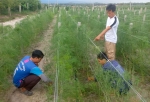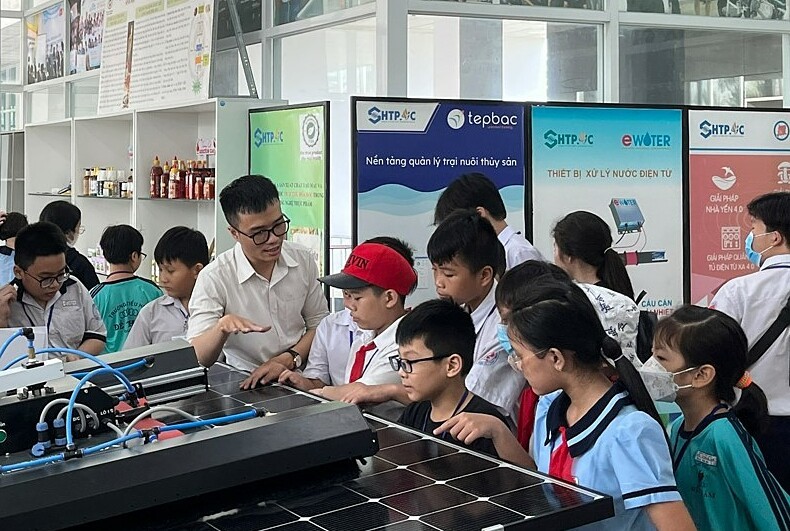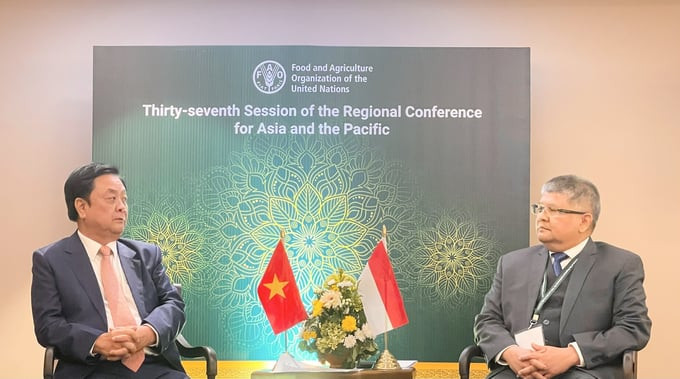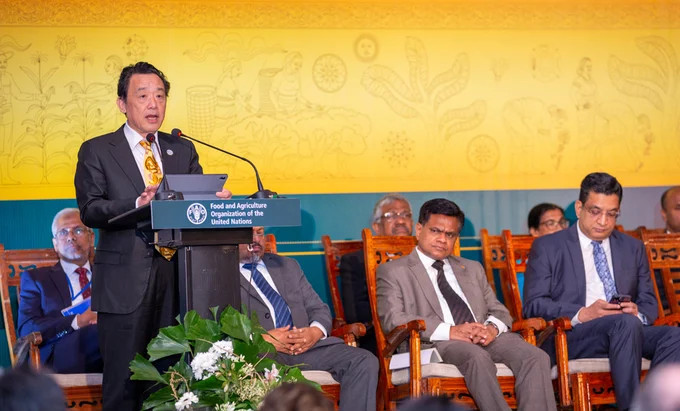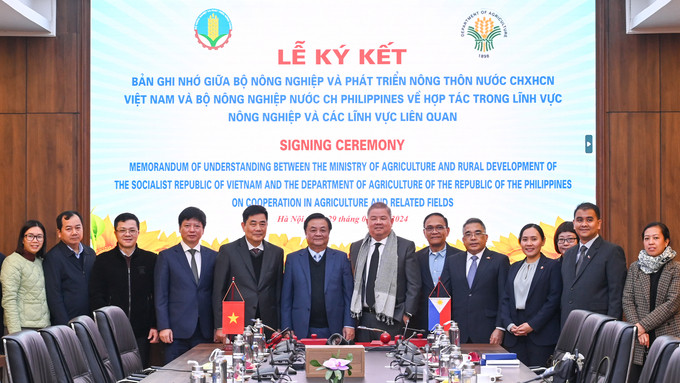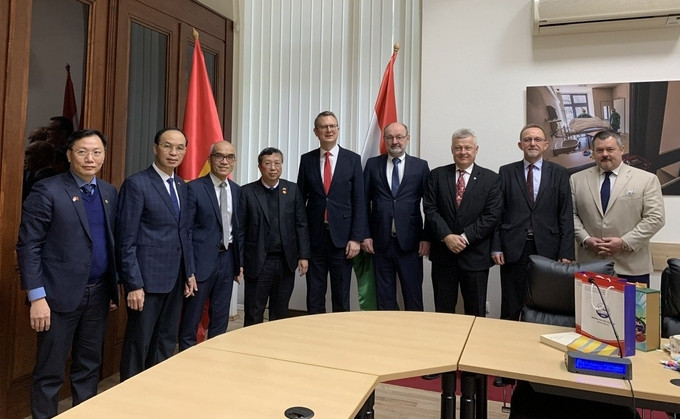The Plant Protection Department of MARD, in collaboration with the Food and Agriculture Organization of the United Nations (FAO), conducted a workshop titled "Support for Development of National Strategy and Action Plan for Integrated Plant Health Management (IPHM)" on May 12.
The FAO-funded project was carried out between April 29, 2021 and April 29, 2023. It was intended for training national TOT-IPHM and also training national faculty staff about IPHM. Through the project, FAO will provide technical support for a review of the NP-IPM in the previous phase (2015-2020), as well as an analysis and inventory of relevant global frameworks, approaches, models, and best practices on plant health management.
The NPHS and renewed NP-IPHM are anticipated to help comprehensively and systematically address transboundary pest and disease risks in the context of climate change and globalization; combine plant health, plant nutrition, food safety, quality, and nutrition; integrate social protection and inclusive growth approaches to better assist disadvantaged groups; contribute to environmental protection, ecosystem and biodiversity conservation; and boost competitiveness.

The Deputy Director of the Plant Protection Department, Nguyen Quy Duong, stated that the initiative still confronted obstacles.
According to the Plant Protection Department, the greatest success of the project after two years of implementation is the incorporation of the IPHM program into the "Strategy for Sustainable Agriculture and Rural Development for the Period 2021-2030, Vision to 2050," approved by the Prime Minister in Decision No. 150/QD - TTg dated January 28, 2022.
On May 27, 2022, MARD signed Decision No. 1909/QD-BNN-KH promulgating the "Action Program to Implement the Strategy for Sustainable Agriculture and Rural Development in the Phase 2021 - 2030, Vision to 2050", in which promoting the application of IPHM on key crops in Vietnam is identified as one of the implementation priorities for the period 2021 - 2030.
In addition, the initiative has produced a framework program and a collection of IPHM-related documents. Specifically, the project has trained a system of quality IPHM trainers from the central to local levels, including 39 TOT-IPHM trainers from the source class; 60 national TOT-IPHM trainers (a 105-day training class); 241 trainers converted from TOT-IPM to TOT-IPHM (training course funded by the Ministry of Agriculture and Rural Development); and 300 core farmers via Farmer Field School (FFS). In addition, the remaining project components were completed in accordance with the initial specifications.
Nguyen Song Ha, Assistant Chief Representative of FAO in Vietnam, stated that among the many nations promoting the development of green and sustainable agriculture, Vietnam is regarded as a nation with strong commitments and actions to realize this content.
According to Ha, the remarkable growth of Vietnam's agricultural sector, production activities, and food security have made significant contributions to the plant protection system. Particularly, the IPM and IPHM programs have been successfully implemented and widely disseminated due to the active and significant participation of the Ministry of Agriculture and Rural Development, the Plant Protection Department, and other relevant agencies.

The initiative contributed to the construction of the "IPHM house." Whether or not that house is put into operation in the future will depend heavily on the efforts and determination of all relevant entities, particularly the localities.
The Deputy Director of the Plant Protection Department, Nguyen Quy Duong, stated that the initiative still confronted obstacles. There are currently 340 TOT-IPHM instructors at the central level. According to the objective of Decision No. 3592/QD-BNN-BVTV, each province must have at least five national and twenty provincial IPHM trainers. 42 provinces have provincial TOT-IPHM trainers, but only Quang Ninh and Hung Yen have 20 trainers per province. Thus, there is still a shortage of 255 national trainers (9 classes, 30 people in each class) and 1,019 provincial trainers (34 classes, 30 people in each class) relative to the target requirements. In addition, 57 provinces have not yet issued plans to promote the implementation of IPHM in their regions.
Duong added that the initiative contributed to the construction of the "IPHM house." Whether or not that house is put into operation in the future will depend heavily on the efforts and determination of all relevant entities, particularly the localities.
Duong proposed that the Ministry of Agriculture and Rural Development coordinate with pertinent ministries, agencies, provinces, and municipalities to ensure a nationwide rollout of the IPHM program. In addition, designating tasks to agencies and divisions under the Ministry to research, transmit, and train officials, businesses, and farmers throughout the nation on IPHM.
In addition, he proposed that FAO continue to support the training of national TOT-IPHM trainers (9 classes), support the development of breeding facilities for biological agents to prevent harmful organisms, provide financial support for the execution of independent projects, and participate in global and regional plant protection projects.
The National Agricultural Extension Center should incorporate IPHM content into agricultural extension programs and documents so that the entire agricultural extension system, from the central to the local levels, can rapidly comprehend the program's content and guide farmers in its implementation.
The block of training schools to introduce IPHM program content to the curricula so that students and trainees can access and implement IPHM immediately upon graduation.
Translated by Linh Linh






